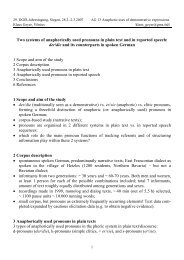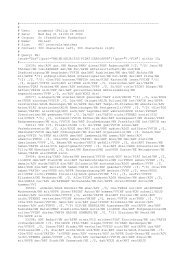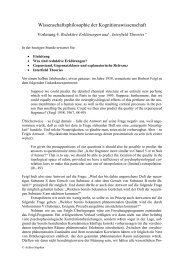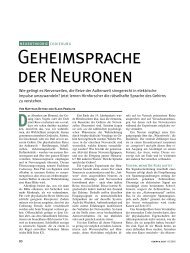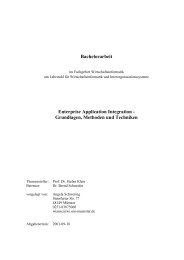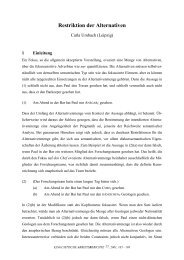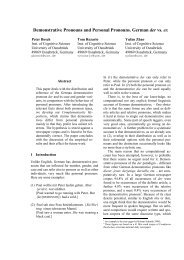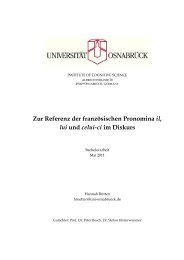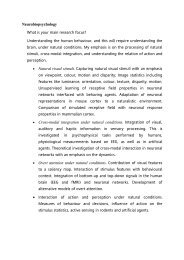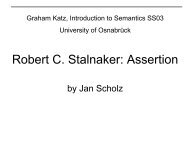Bound and referential pronouns - Cognitive Science
Bound and referential pronouns - Cognitive Science
Bound and referential pronouns - Cognitive Science
Create successful ePaper yourself
Turn your PDF publications into a flip-book with our unique Google optimized e-Paper software.
DPro function <strong>referential</strong>ly – not bound<br />
Martina Wiltschko (1999):<br />
a) Peter glaubt, daß {er/der} dumm ist.<br />
[Peter believes that {he/DPro} is stupid.]<br />
b) [Jeder Mann] glaubt, daß {er/der} dumm ist.<br />
[Every man believes that {he/DPro} is stupid.]<br />
DPro function <strong>referential</strong>ly – not bound ?<br />
Hinterwimmer (2009) discusses sentences like the following<br />
– which seem to demonstrate that DPro can be bound by a<br />
c-comm<strong>and</strong>ing quantifying DP:<br />
(4) Klaus i stellte [jedem Studenten] k eine Frage, die der k nicht beantworten konnte.<br />
[Klaus put one question to [every student] k that [DPro k] could not answer.]<br />
3<br />
4



